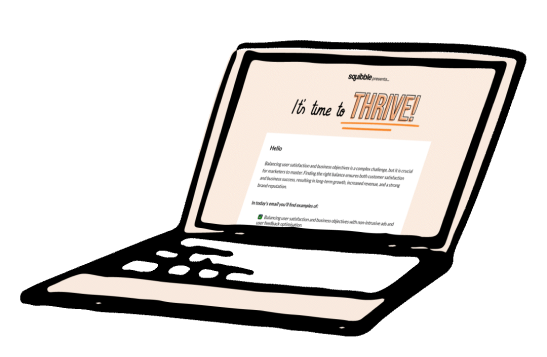Your friends are saying you could be the next Mark Zuckerberg – Are they right?
We know that feeling, that adrenaline pumping, tummy churning feeling – that moment you strike on a light bulb idea for a business. You’re already picturing success in the future – people using your product or businesses using your services.
Undoubtedly determination and positivity are two essential personality traits for any entrepreneur. Yet a business cannot thrive on these alone – before you so much as pump a single pound into your idea, you need to know, for sure, that your bright idea has feasibility – that there’s truly a need out there beyond what your friends and family are confidently telling you. You need idea validation, which isn’t as complex as it sounds – let’s run you through the process in a matter of five straightforward steps.
First of all – Let’s define ‘idea validation’
Idea validation is the process of exploring, testing and validating an idea before moving ahead to other business tasks, such as working out a brand name, creating a website or commissioning a logo design. Idea validation belongs in the realm of research and development – and from one man bands, to the biggest brands in the world, companies use it to test the waters for product and service ideas before unleashing them to the wider world.
Idea validation cements your commercial confidence…
And beyond this, there’s something else that it offers that’s just as valuable.
Idea validation not only provides you with peace of mind that there’s a need or desire for your product or service, it also provides you with invaluable feedback as to how you can develop it to corner a USP no other competitor has yet. Going further, idea validation is additionally capable of helping you understand the end consumer – something that’s critical if you’re to shape your offering to optimally solve whatever problem it is that your target market is facing. So, that’s the what and the why, now for the how…
STEP 1 – Brainstorm, brainstorm, brainstorm (and refine your many ideas down to 4 or 5)
You may have a million and one ideas floating around your business brain – but for idea validation to be effective, you’ll need to refine these and whittle them down to between 4 and 5. This may be 4 to 5 product features, service types, brand names or tagline.
STEP 2 – DO NOT explore your idea with friends and family
DO NOT, and we repeat DO NOT, ask friends and family for their opinion. Why? Because you’ll only gain biased feedback – and in any event, it’s unlikely that your circle of friends and family would all be your ideal customer.
STEP 3 – Select your test target market
Your interviewees should represent your target market – those perfect customers whom you’d love to get on board. You should aim for around 10 to 15 interviewees; they may be amongst your inbox contact list already, or perhaps you could discover them via a LinkedIn status update. Wherever you find them, you’ll need approximately 10 minutes of their time via Skype (there’s little, if any, any need to conduct interviews face to face – something that wastes time travelling, and increases the pain factor for interviewees, making it easy for them to say no to your request).
STEP 4 – Undertake relaxed interviews
There are six core steps for your interviewing process, which should flow as follows…
First, welcome your interviewee – say thanks and explain that, with their help, you’re aiming to create a product/service that is genuinely wanted by the market.
Second, make it clear that this isn’t a sales pitch, and reassure them that their opinion is valued.
Third, briefly cover the background to your business or business concept, being sure to avoid jargon.
Fourth, explain that you’re going to run through a set number of versions of your idea – after each, you’ll ask for their feedback – being sure to find out how the interviewee both feels and what they think. At this point, you may want to mention that you’ll be taking notes so that you can accurately recall their answers later on. Also bear in mind the interviewee’s body language, expressions and the time it takes for them to answer.
And finally, thank them for their time, and don’t forget to ask whether you can contact them in the future, should you need their feedback again.
Finally step back, analyse and move onwards
Now it’s time to put together a picture from all that your interviewees have said. If you constructed your interview well (following the process laid out above) then this final step should be simple. Just amalgamate the feedback for each idea, picking out common thoughts across each. Hopefully, there’s a clear cut winner amongst your ideas, but if there isn’t, you have a prime opportunity for creating a ‘consumer ideal’ hybrid – mixing and matching parts from each.
So, that’s it. Idea validation is far simpler than many people presume it to be – there’s no need for big budgets or painful interview processes. Whilst there’s no avoiding the fact that idea validation is time consuming, it is an inherently vital investment. Get it right, and you not only prove that your idea has legs, but you also gain insight that could shape your product or service to make it irresistible to your market. Get it wrong, however (or skip it altogether) and you risk going to market completely blind as to the risks that are out there or, worse still, funnelling money into an idea that was dead in the water before you even began.






